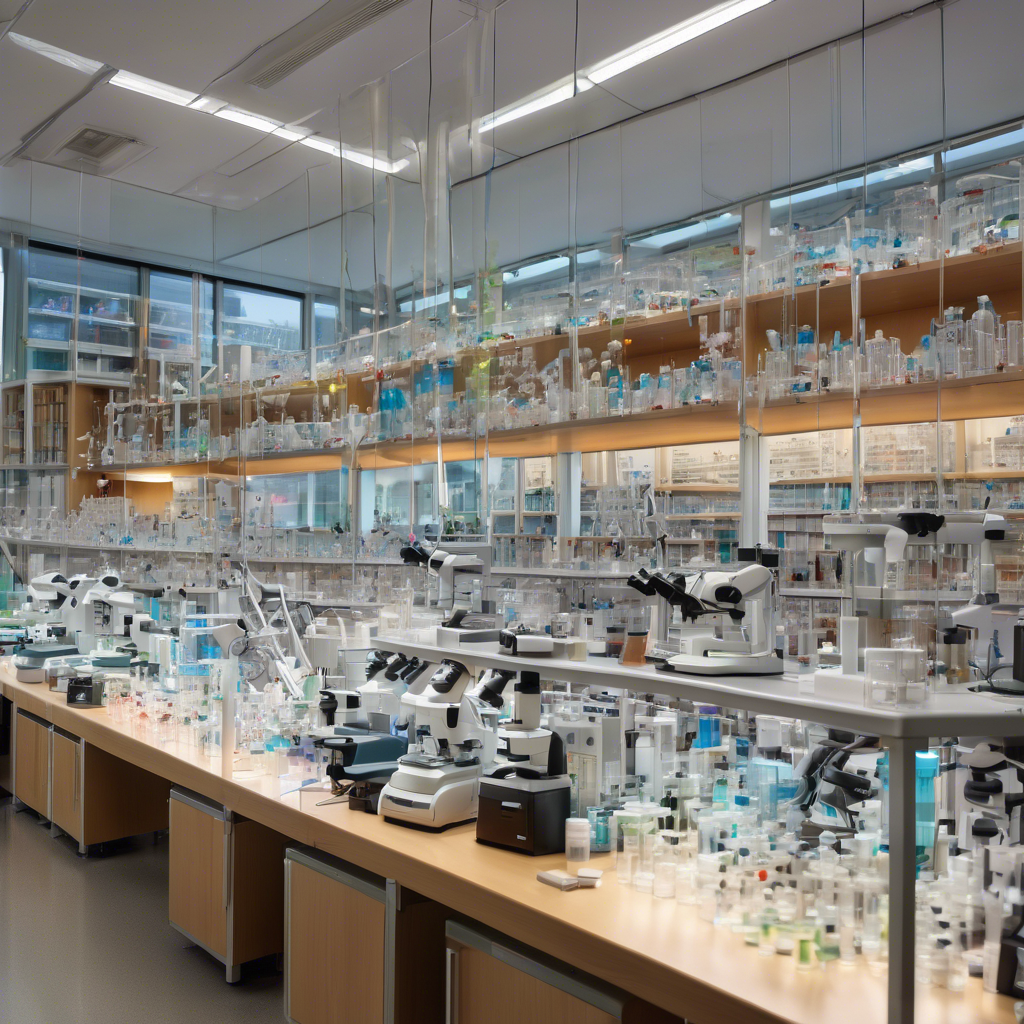AI's Transformative Impact on Scientific Research: Insights from Christopher Bishop

Brief news summary
In a recent interview with the Financial Times, Christopher Bishop, head of Microsoft’s AI for Science lab, discussed the revolutionary influence of artificial intelligence (AI) on scientific research. He highlighted the critical role of deep learning and large language models (LLMs) in disciplines such as chemistry, physics, biology, and climate science. AI is set to play a crucial role in solving pressing global issues, including drug development and climate change. Bishop's shift from theoretical physics to AI showcases how neural networks can replicate complex cognitive functions. He marked 2012 as a turning point for AI, coinciding with advancements in deep learning and models like GPT-4. At Microsoft, AI is actively applied in scientific projects, exemplified by the TamGen drug generator initiative. Bishop foresees a future where AI not only boosts research but also fosters global scientific collaboration. This increasing integration of AI represents a significant advancement in addressing complex scientific challenges and signals a new era of exploration and discovery.Christopher Bishop, the leader of Microsoft's AI for Science lab, has highlighted the significant influence artificial intelligence (AI) is exerting on scientific discovery. In a recent discussion with the Financial Times, he detailed how progress in deep learning and large language models (LLMs) is fundamentally changing the speed and scope of research in disciplines such as chemistry, physics, biology, and climate science. Bishop believes that AI's most important contribution to science will be its ability to accelerate breakthroughs necessary for tackling urgent global issues like drug discovery, energy development, and climate change mitigation. He reflects on his career path, noting a transition from a focus on theoretical physics to a deeper interest in AI, inspired by the workings of neural networks and their potential to model complex brain functions. Bishop pinpointed 2012 as a crucial year in AI, marking the emergence of deep learning, and pointed out the significant advancements in recent years, particularly with LLMs like GPT-4, which are exhibiting improved reasoning abilities. According to Bishop, Microsoft views AI not merely as a tool but as a core engine for scientific empowerment. Among the cutting-edge technologies in development at Microsoft is the TamGen drug generator, designed to enhance research efforts.
This aligns with Bishop's vision for the future, which includes additional advancements in AI-assisted emulators and tools that aim to simplify various discovery processes. He predicts a remarkable shift in scientific inquiry in the coming years, leading to an era dominated by AI-enhanced exploration and understanding. As the convergence of AI and science evolves, Bishop's insights point to a future filled with opportunities. The incorporation of sophisticated AI technologies is poised to improve collaboration among scientists and researchers worldwide, creating an environment where breakthroughs can happen more swiftly and effectively. The conversation around AI's role in scientific research is gaining traction as different sectors start to leverage its potential. Bishop's observations reflect a larger trend where technology is not just a supplementary aspect of research, but rather is taking center stage in transforming how we tackle intricate scientific challenges. In conclusion, the field of scientific research is undergoing a transformation through the lens of AI, particularly as influential figures like Christopher Bishop champion its growing role in unveiling solutions to some of society's most pressing issues. With ongoing advancements and innovations in AI technology, the future of scientific inquiry appears exceptionally bright.
Watch video about
AI's Transformative Impact on Scientific Research: Insights from Christopher Bishop
Try our premium solution and start getting clients — at no cost to you

I'm your Content Creator.
Let’s make a post or video and publish it on any social media — ready?
Hot news

Why AI Might Stamp Out Inflation but Endanger the…
If AI fulfills its promises, the future economy could experience lower inflation alongside significantly reduced employment.

AI-Generated Videos Gain Popularity on Social Med…
Artificial intelligence (AI) is making significant advances across sectors, notably transforming social media content creation through AI-generated videos that are gaining popularity worldwide.

ServiceNow Reimagines CRM for the AI Era to Sell,…
A groundbreaking AI-powered CRM platform has been launched to transform customer relationship management by streamlining operations across departments, enhancing customer experience, and enabling AI-driven autonomous task completion.

Google DeepMind's AlphaCode Achieves Human-Level …
DeepMind, a leading artificial intelligence research firm, has developed an innovative system called AlphaCode, which demonstrates the impressive capability to write computer code comparable in quality and complexity to that of skilled human programmers.

As AI Search Hits 700M Users, New WordPress Tool …
The landscape of online search is undergoing a significant transformation as traditional search engines give way to AI-driven "answer engines," altering how users find information and how businesses maintain visibility.

The Rise of the AI Marketing Cloud: A Deep Dive i…
Date: January 2, 2026 Introduction Entering 2026, the fusion of artificial intelligence and marketing technology has shifted from experimentation to industrial-scale application

AI in Video Analytics: Unlocking Insights from Vi…
Artificial intelligence is transforming video analytics by equipping businesses with powerful tools to extract valuable insights from massive amounts of visual data.
AI Company
Launch your AI-powered team to automate Marketing, Sales & Growth

and get clients on autopilot — from social media and search engines. No ads needed
Begin getting your first leads today








